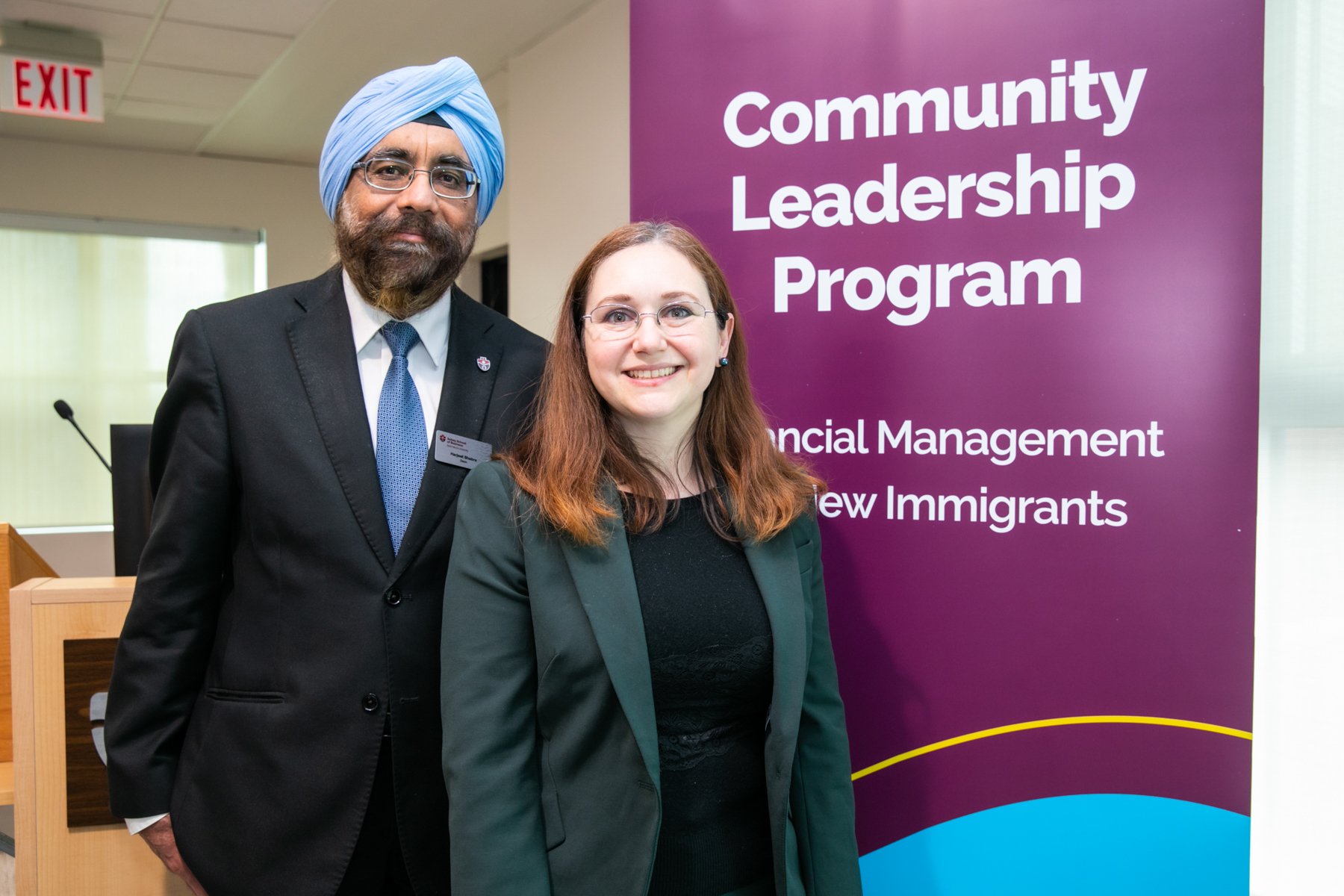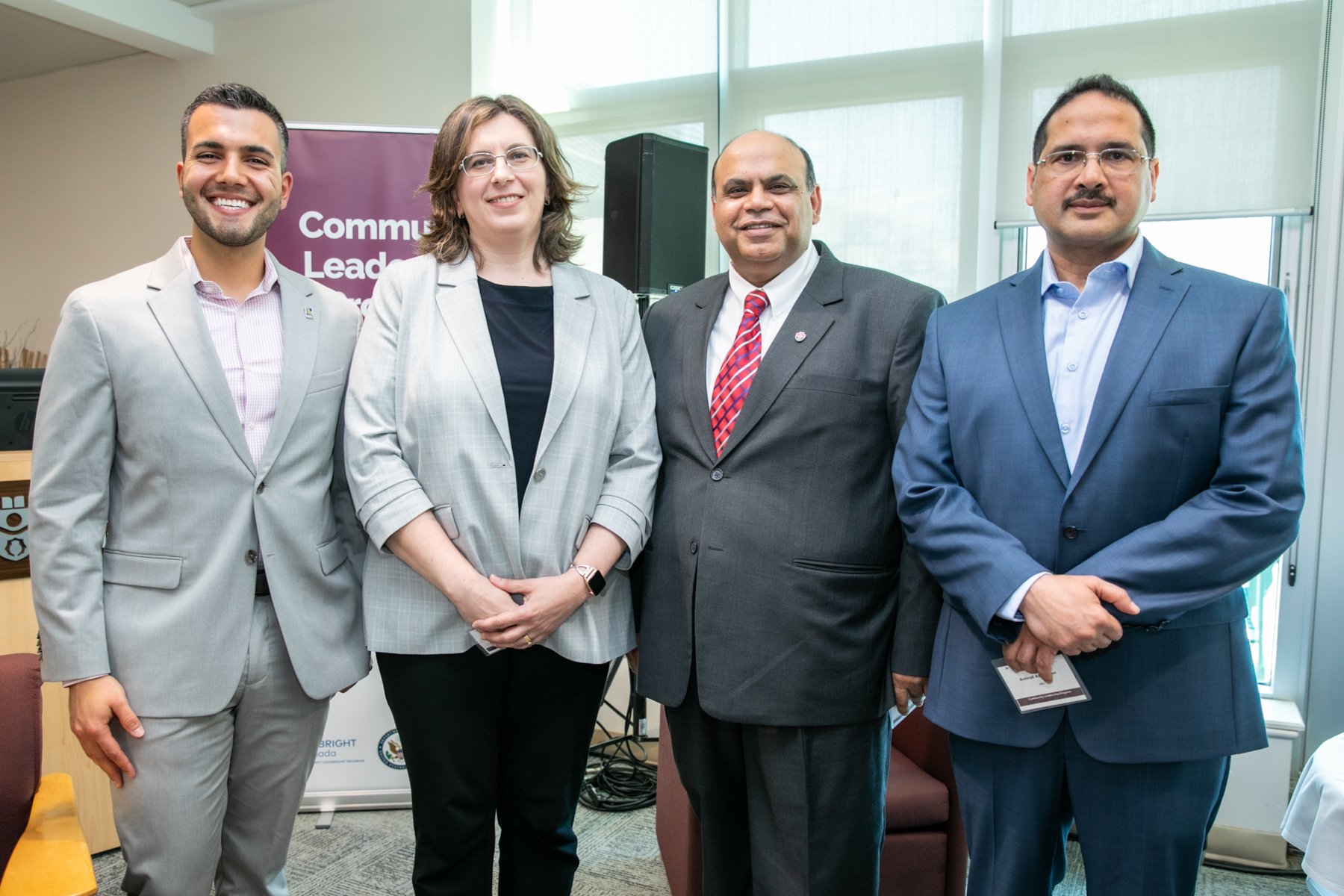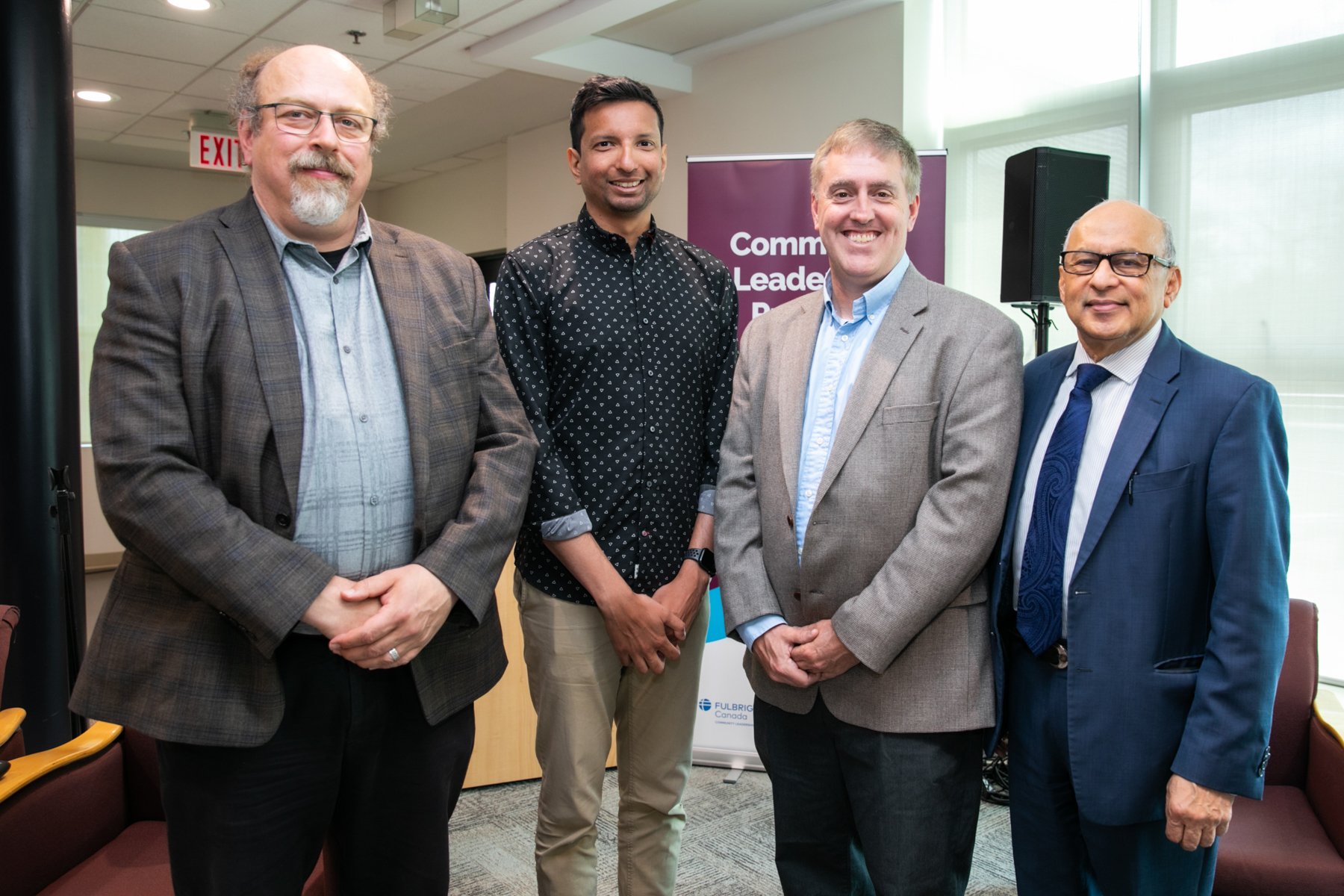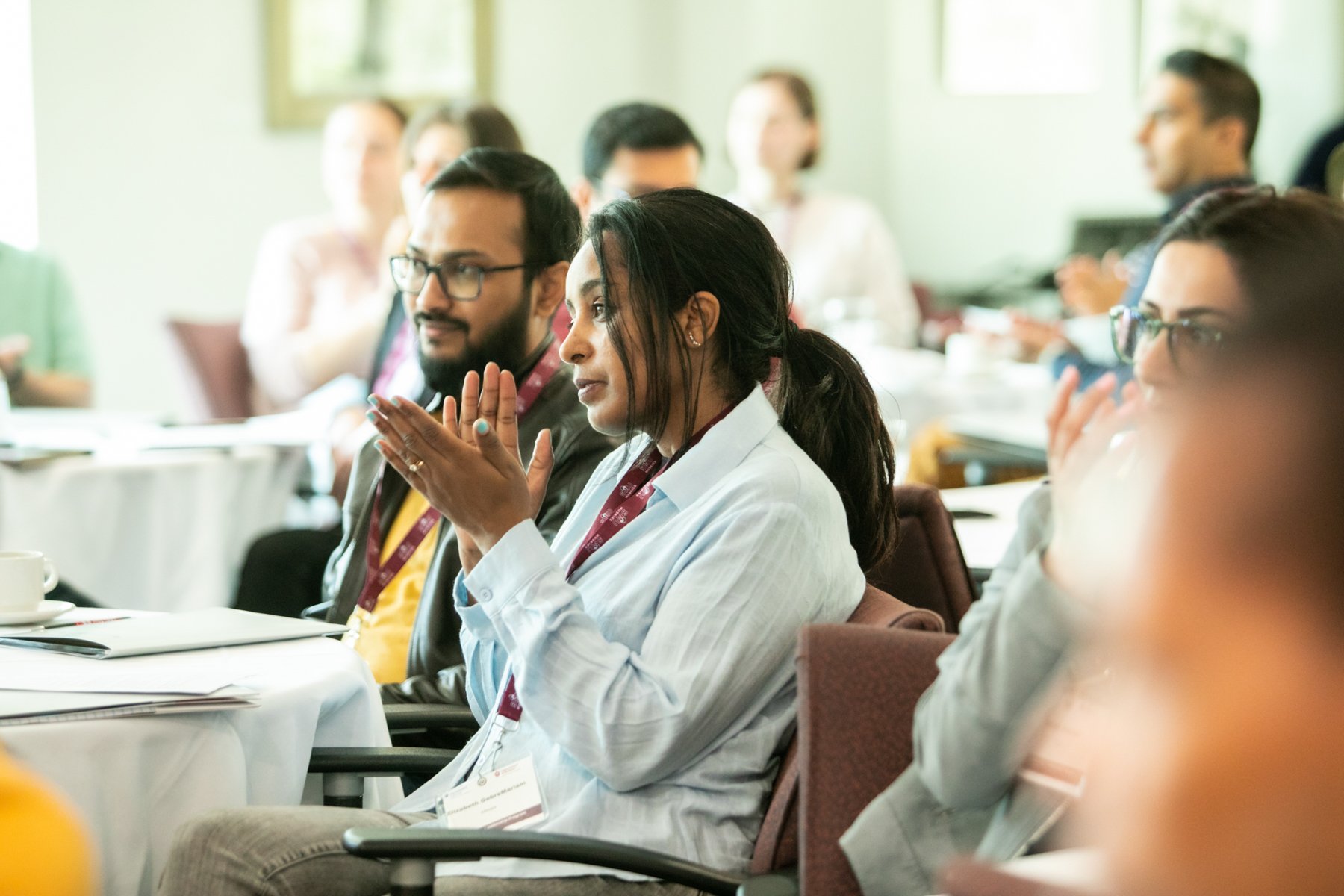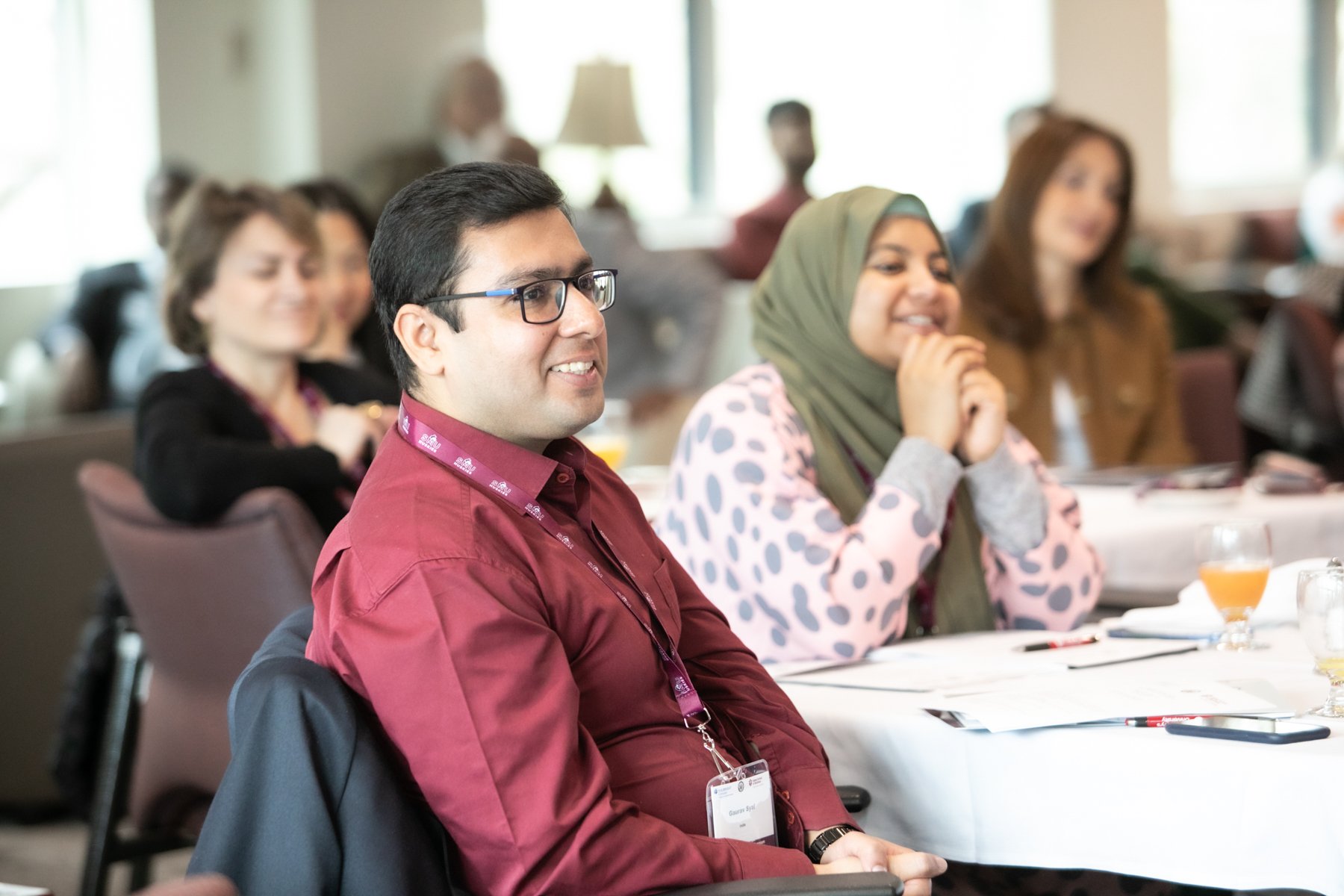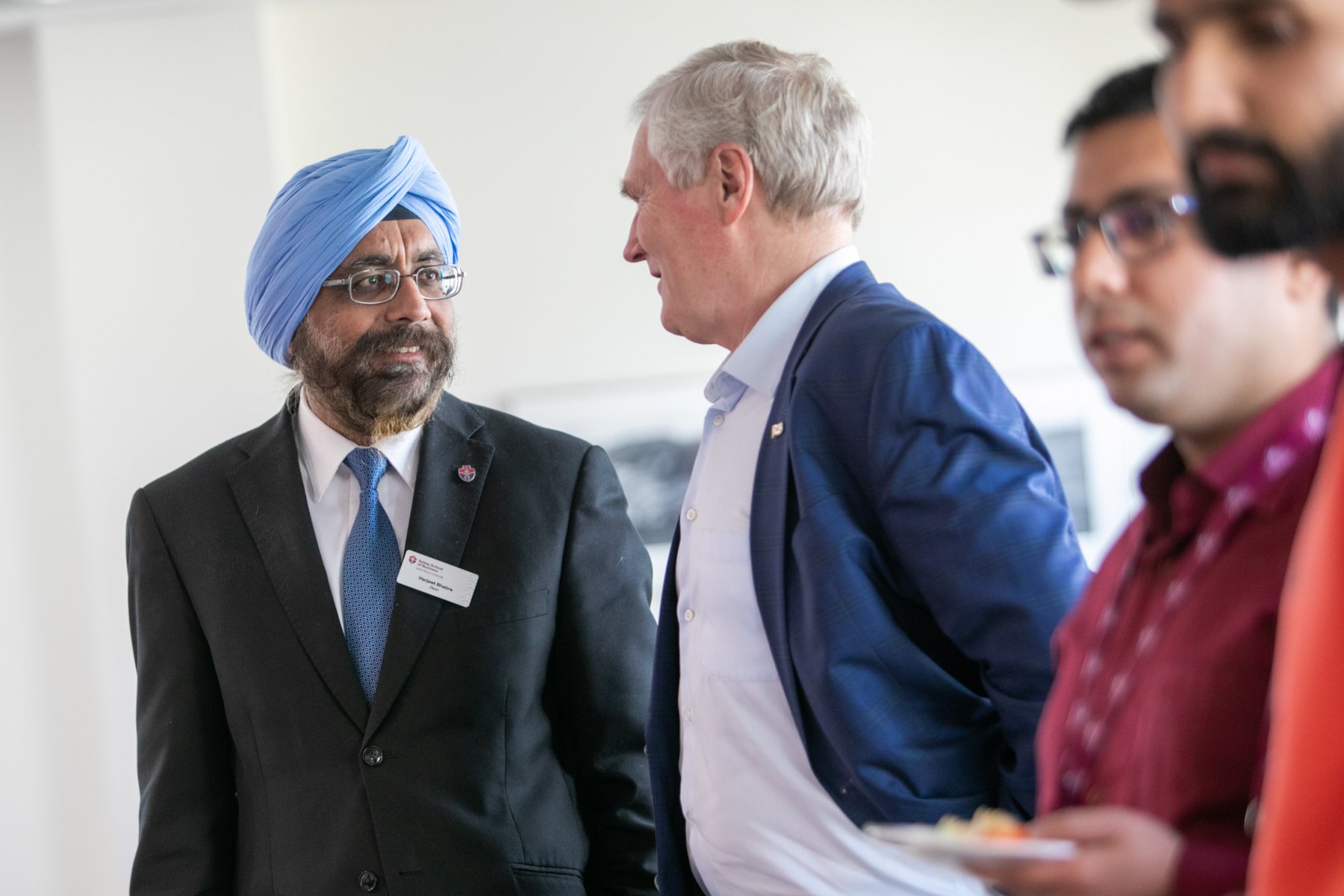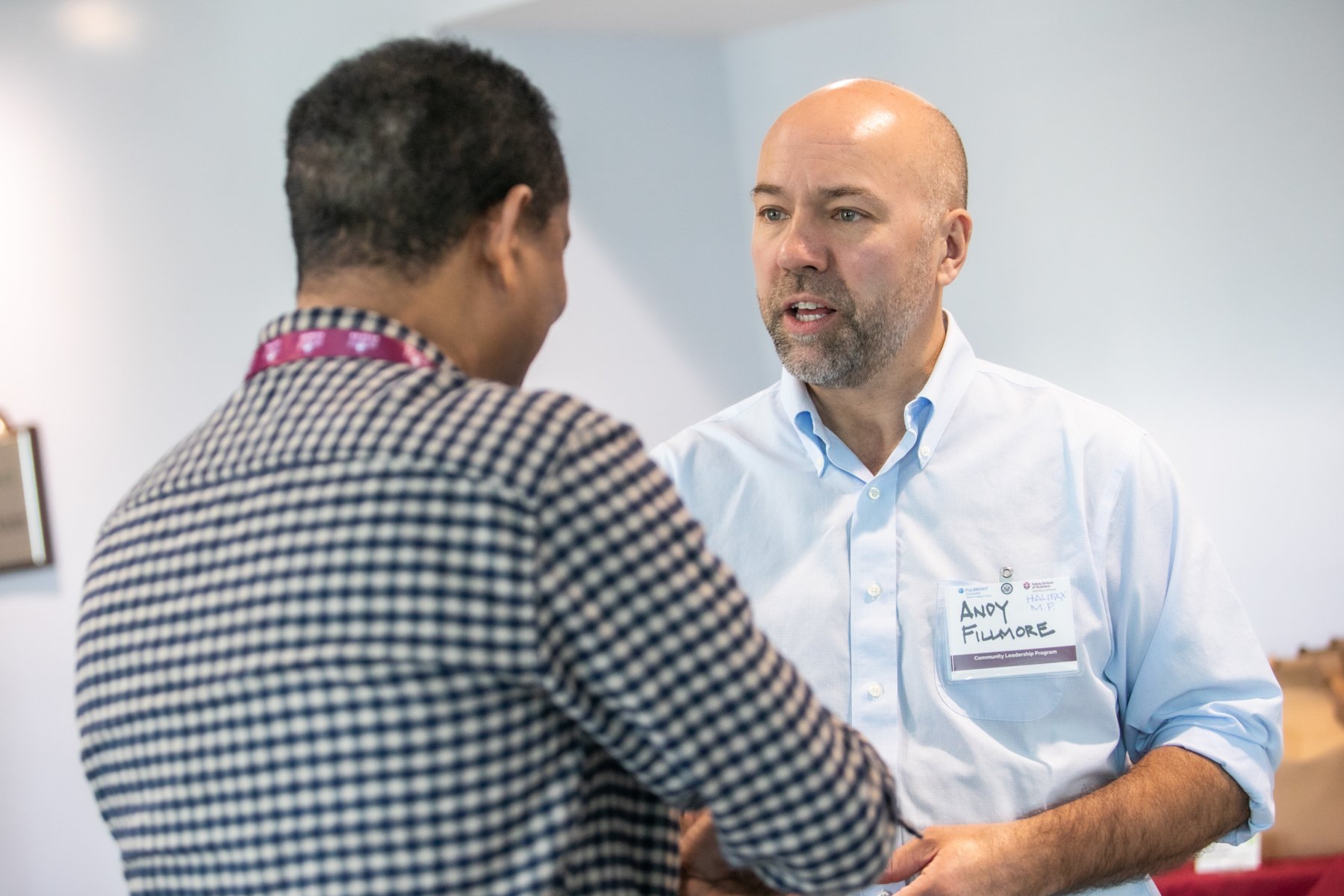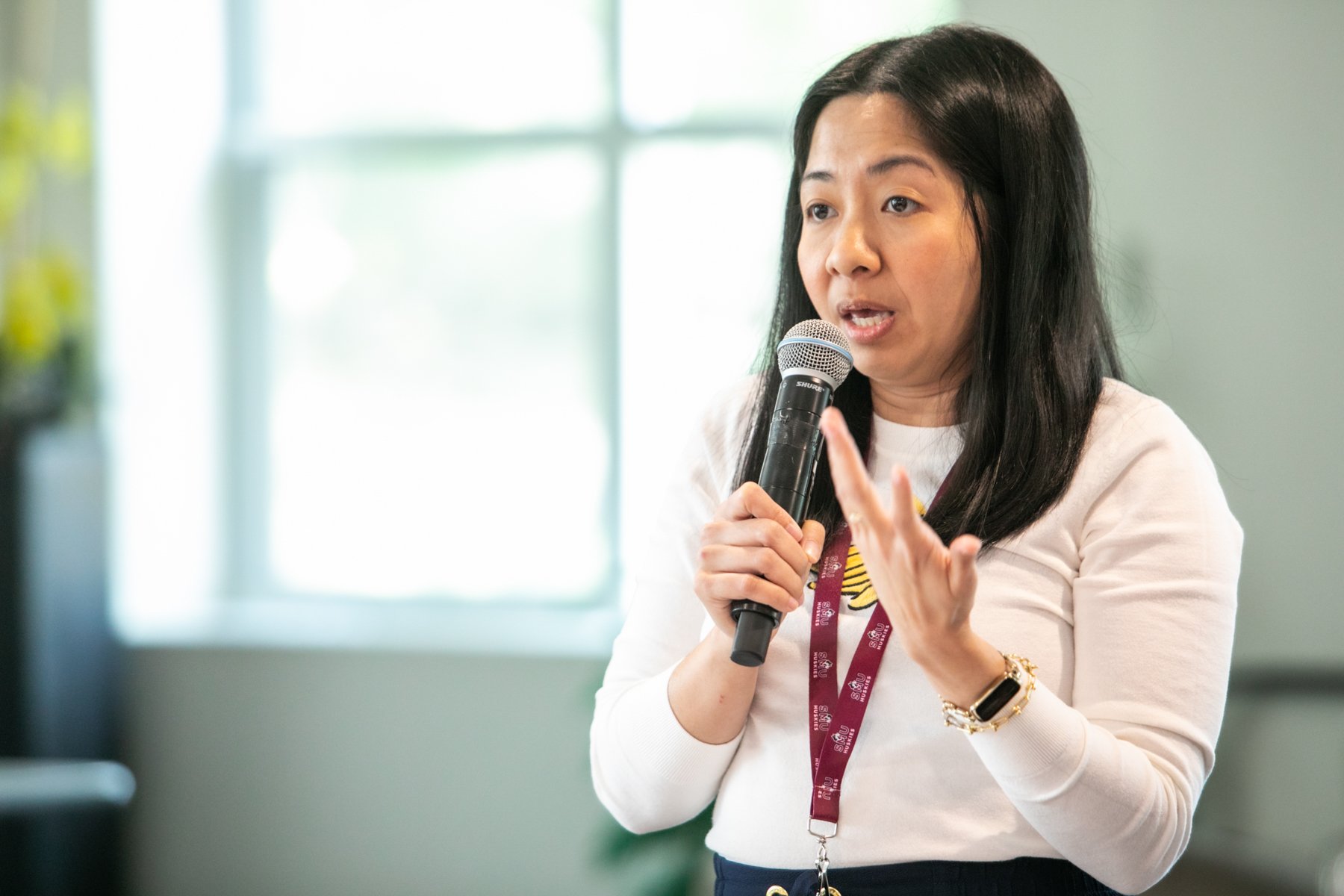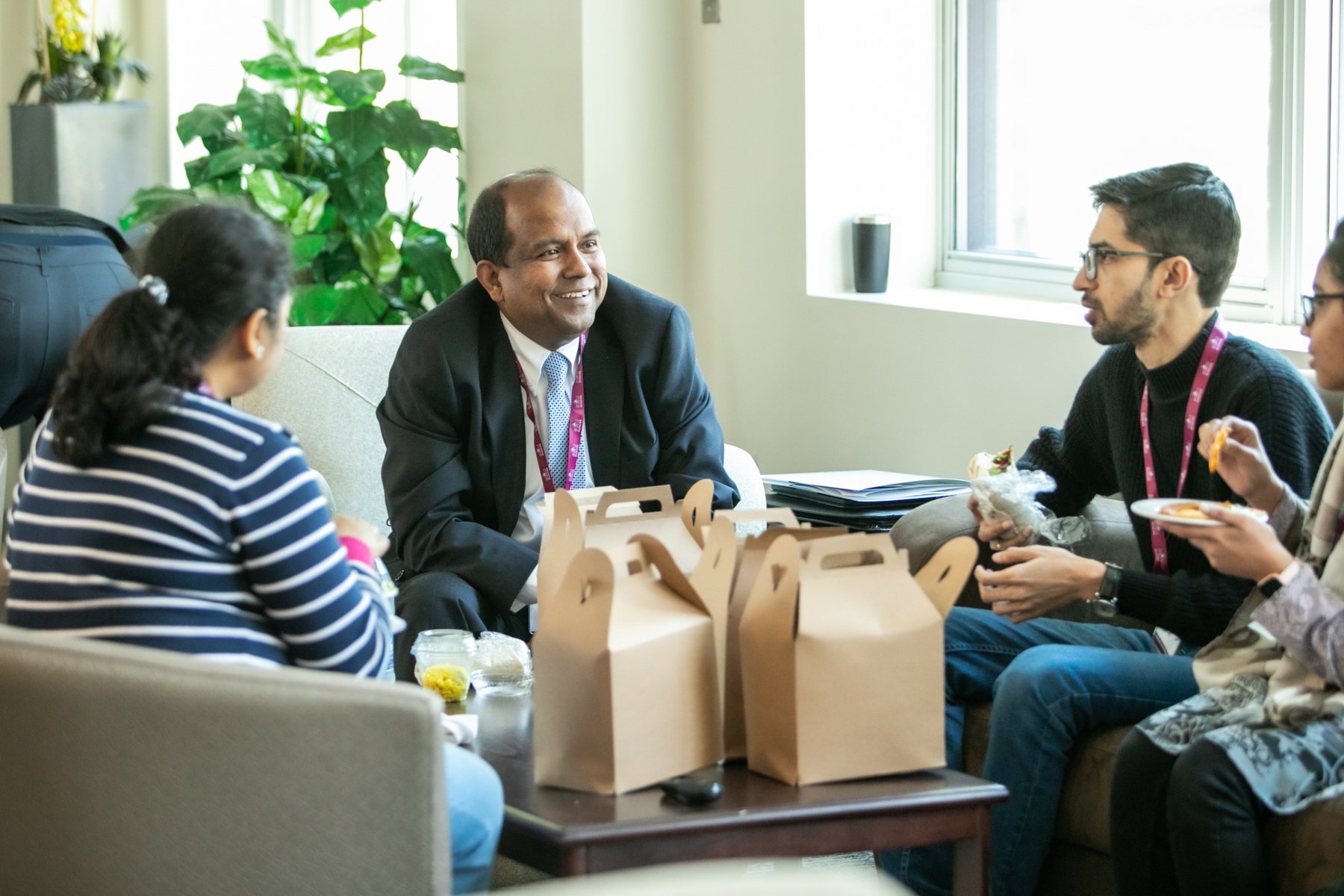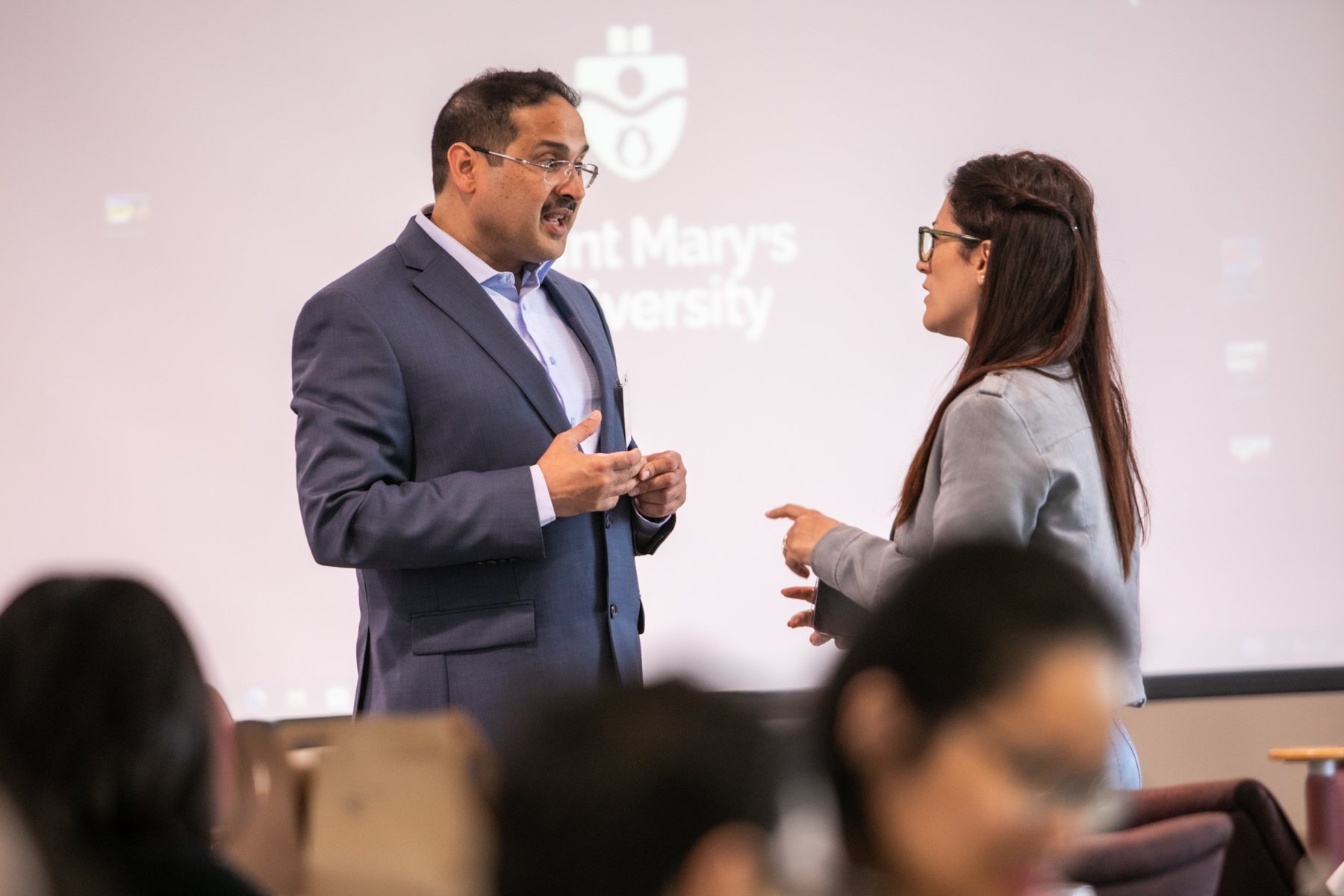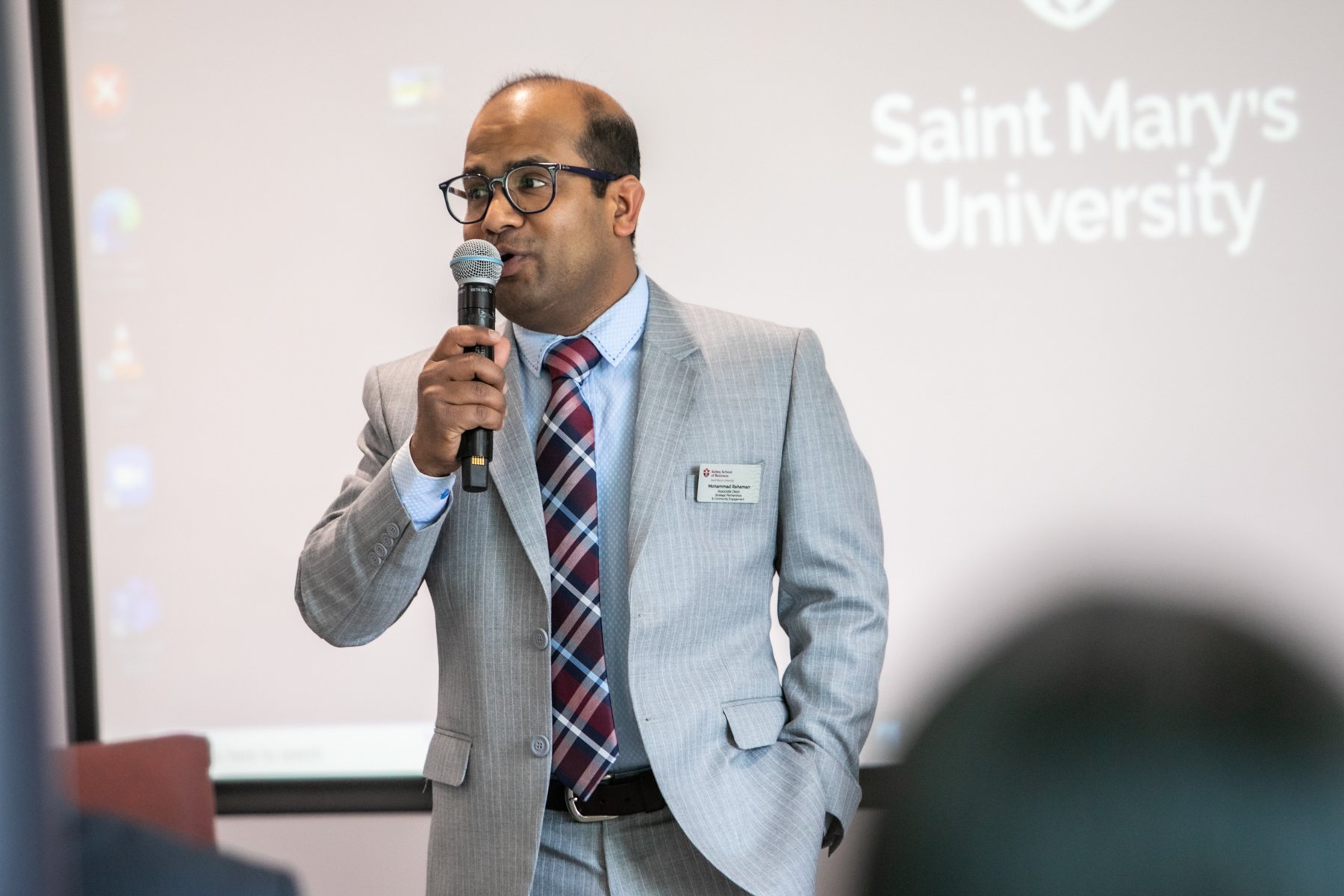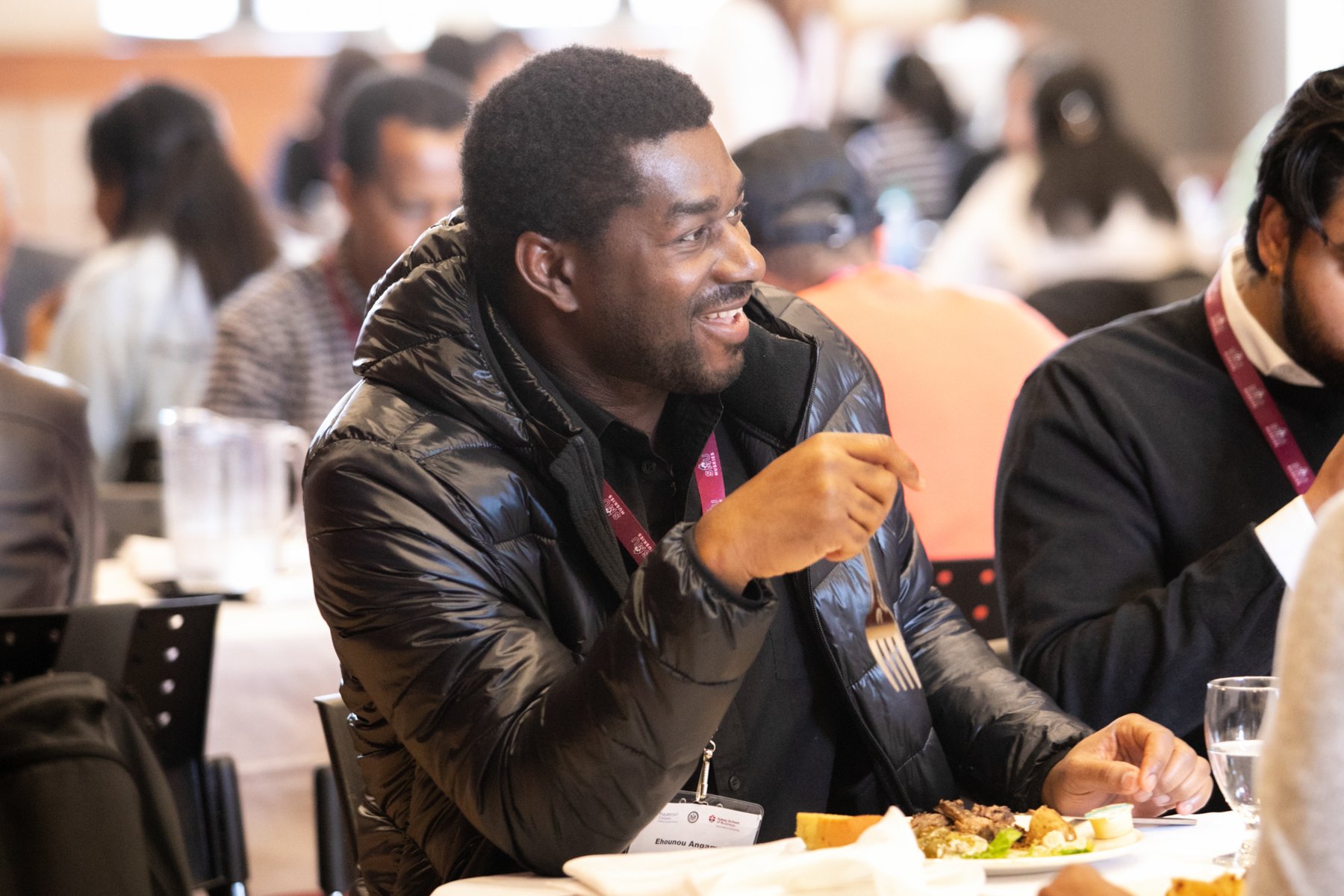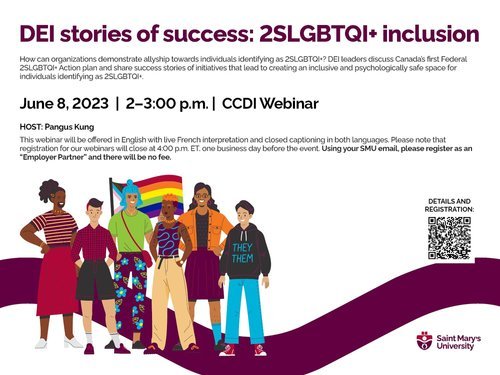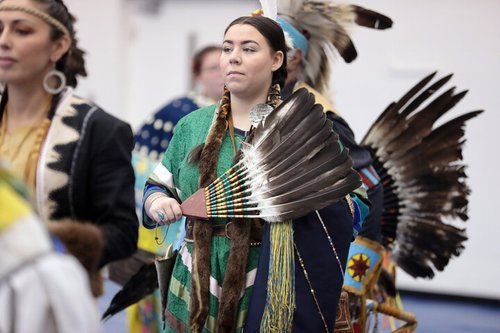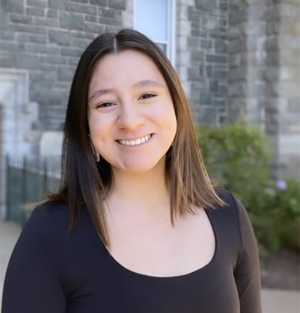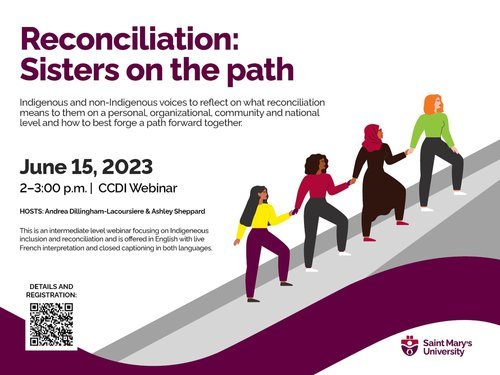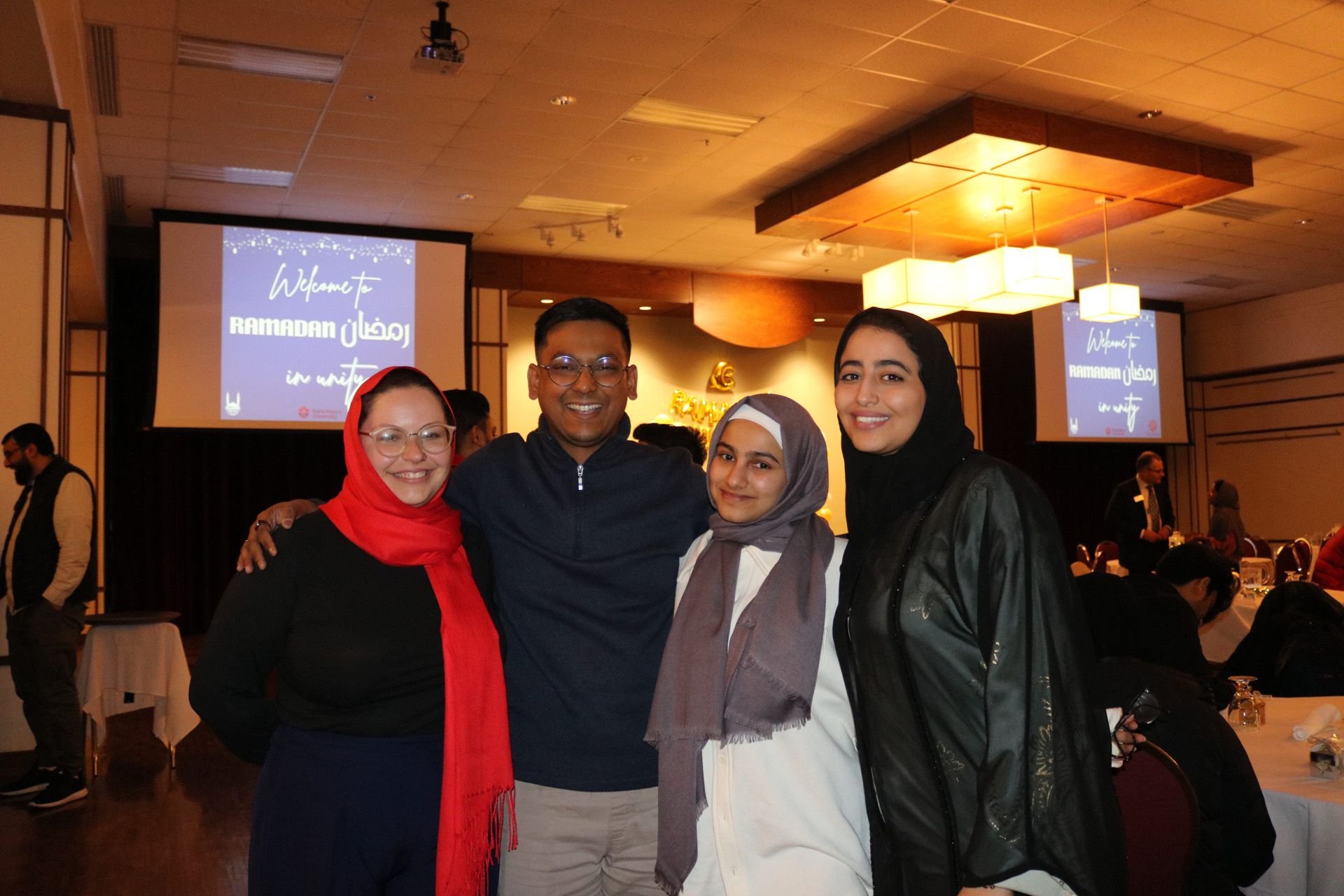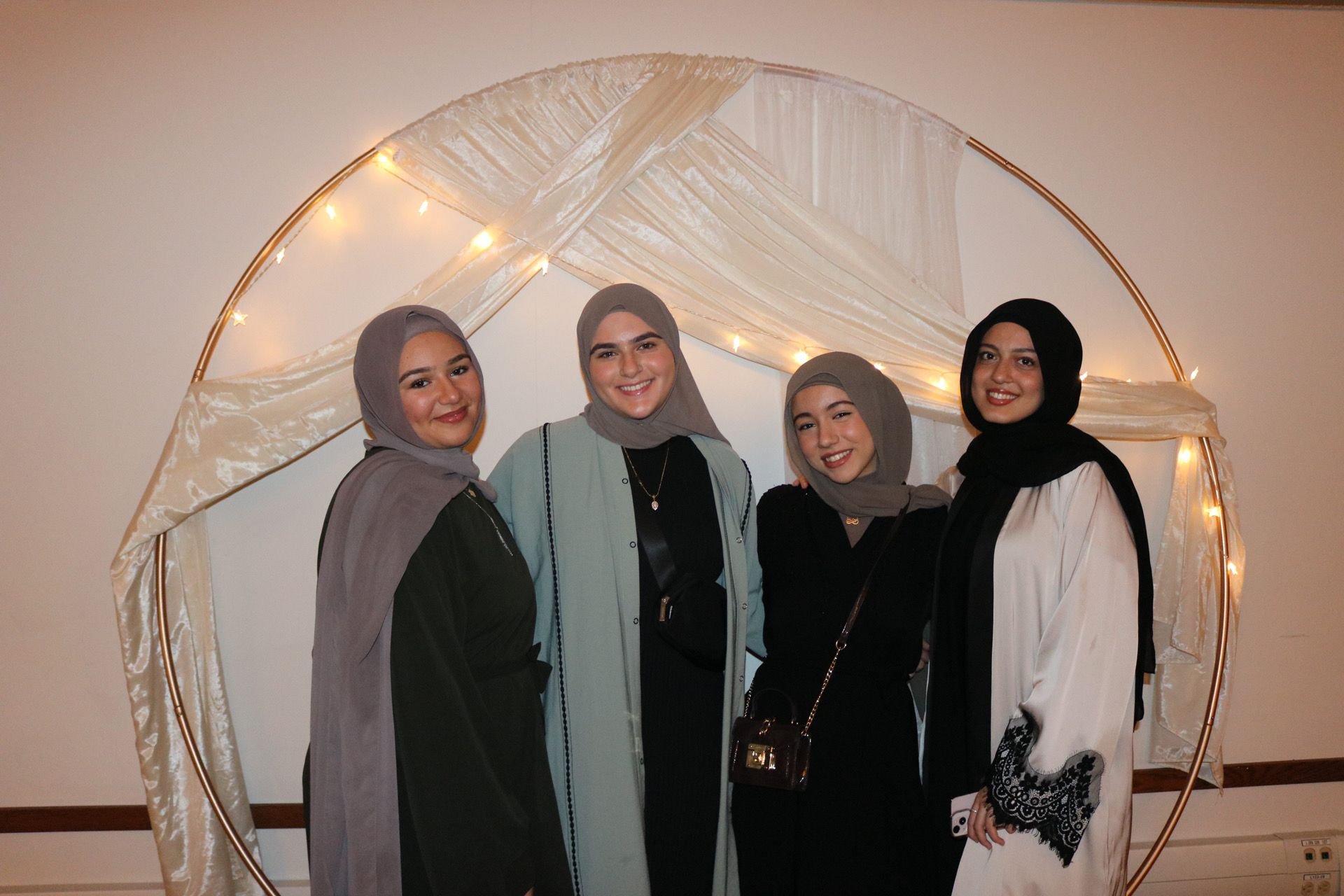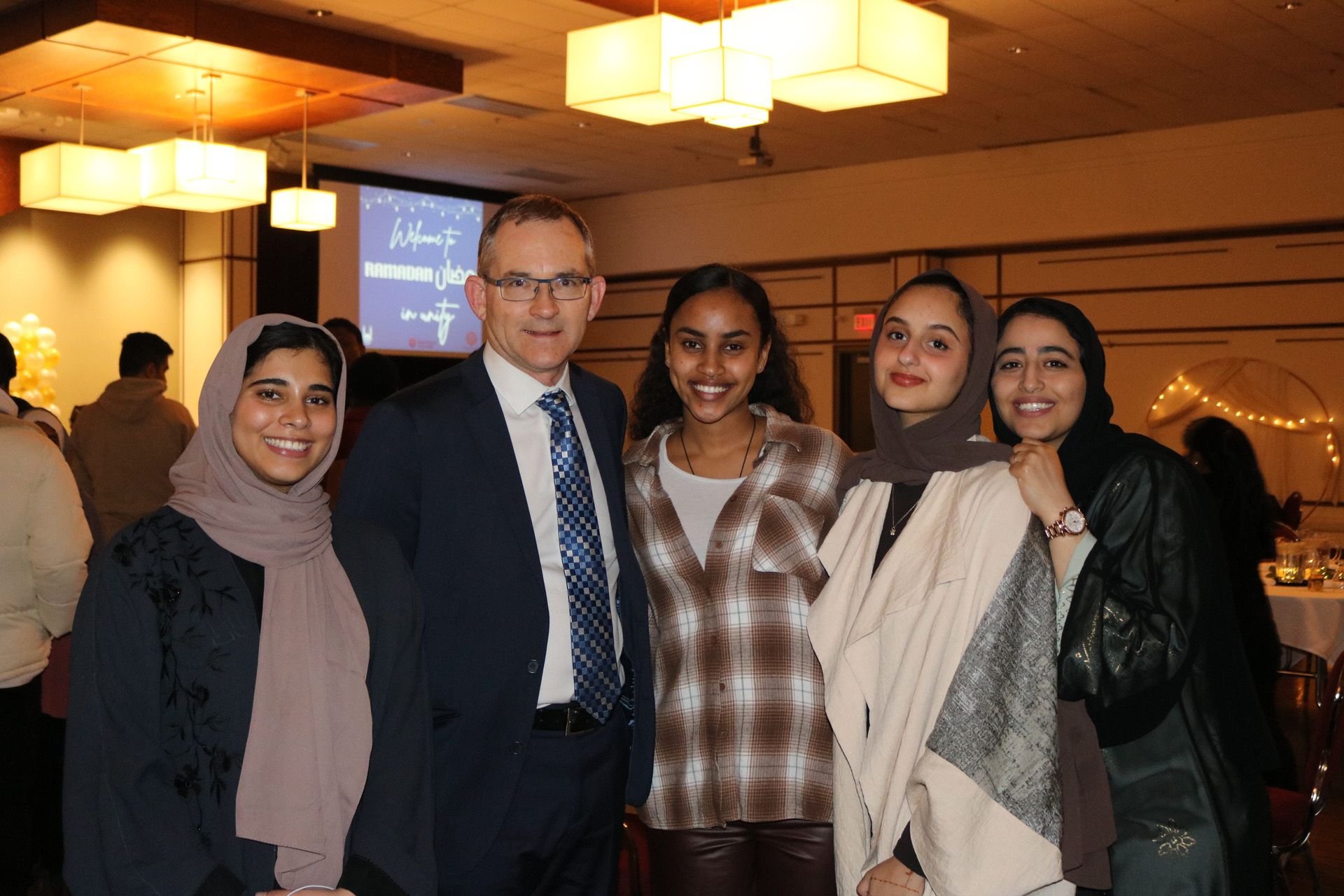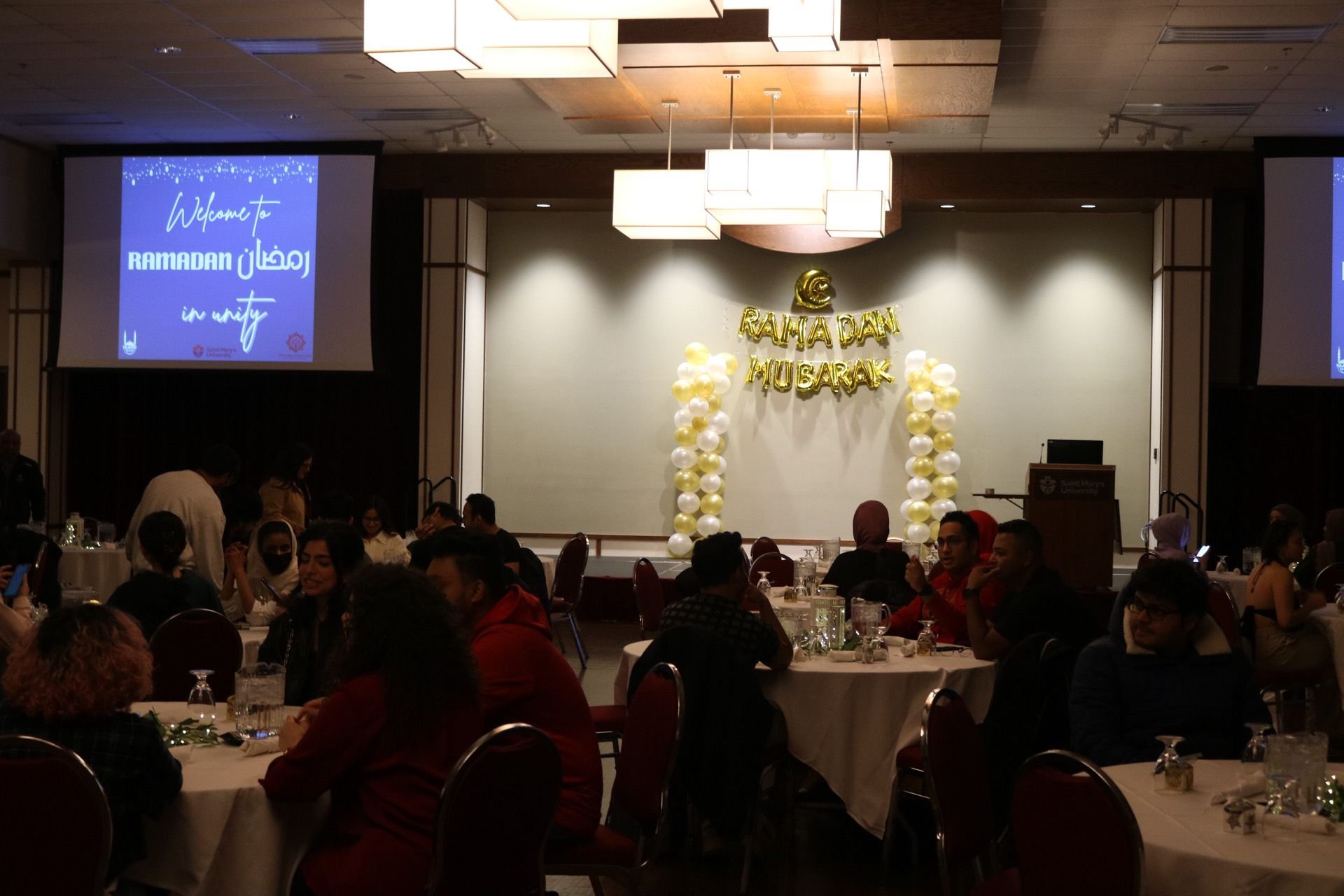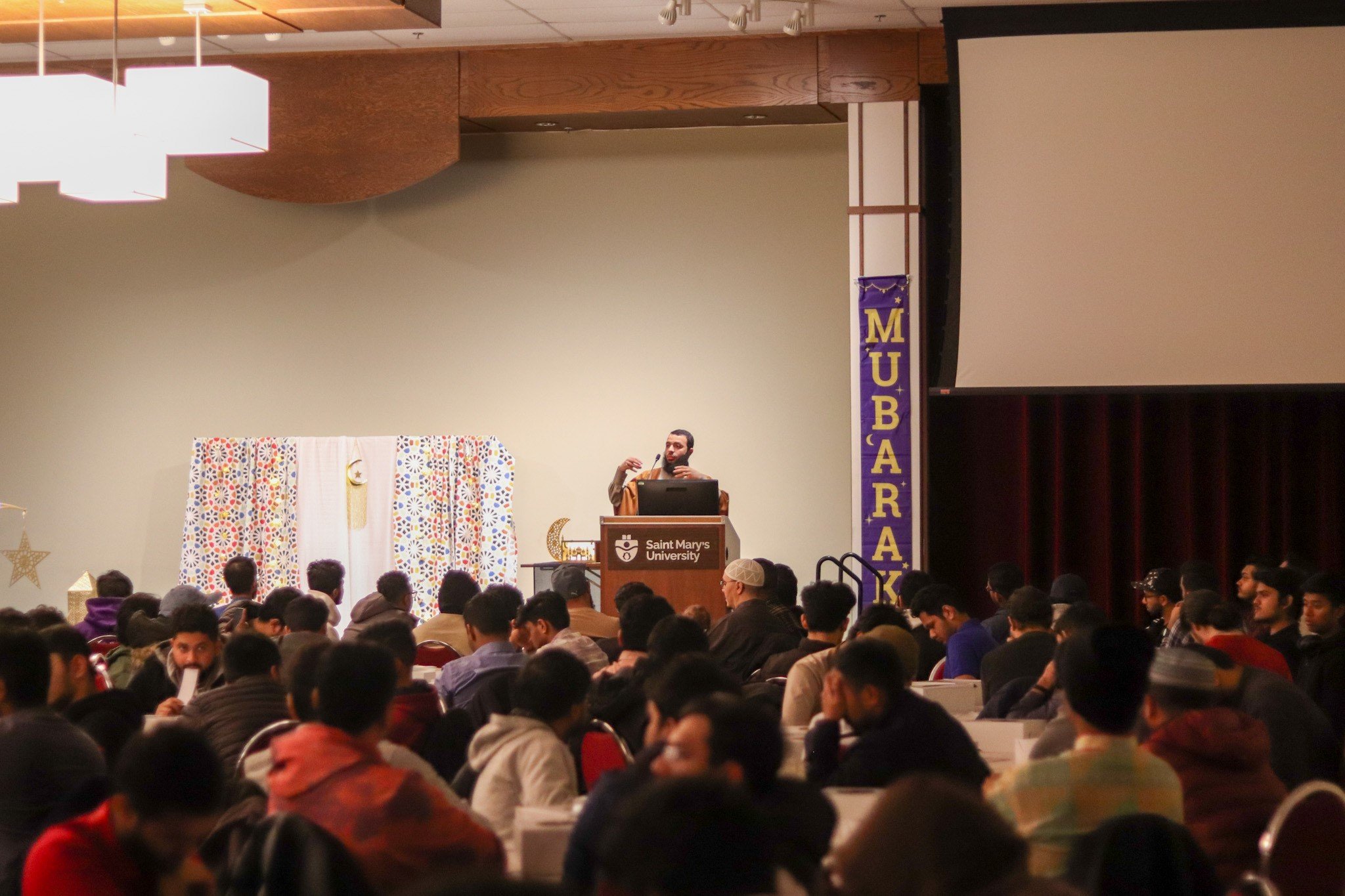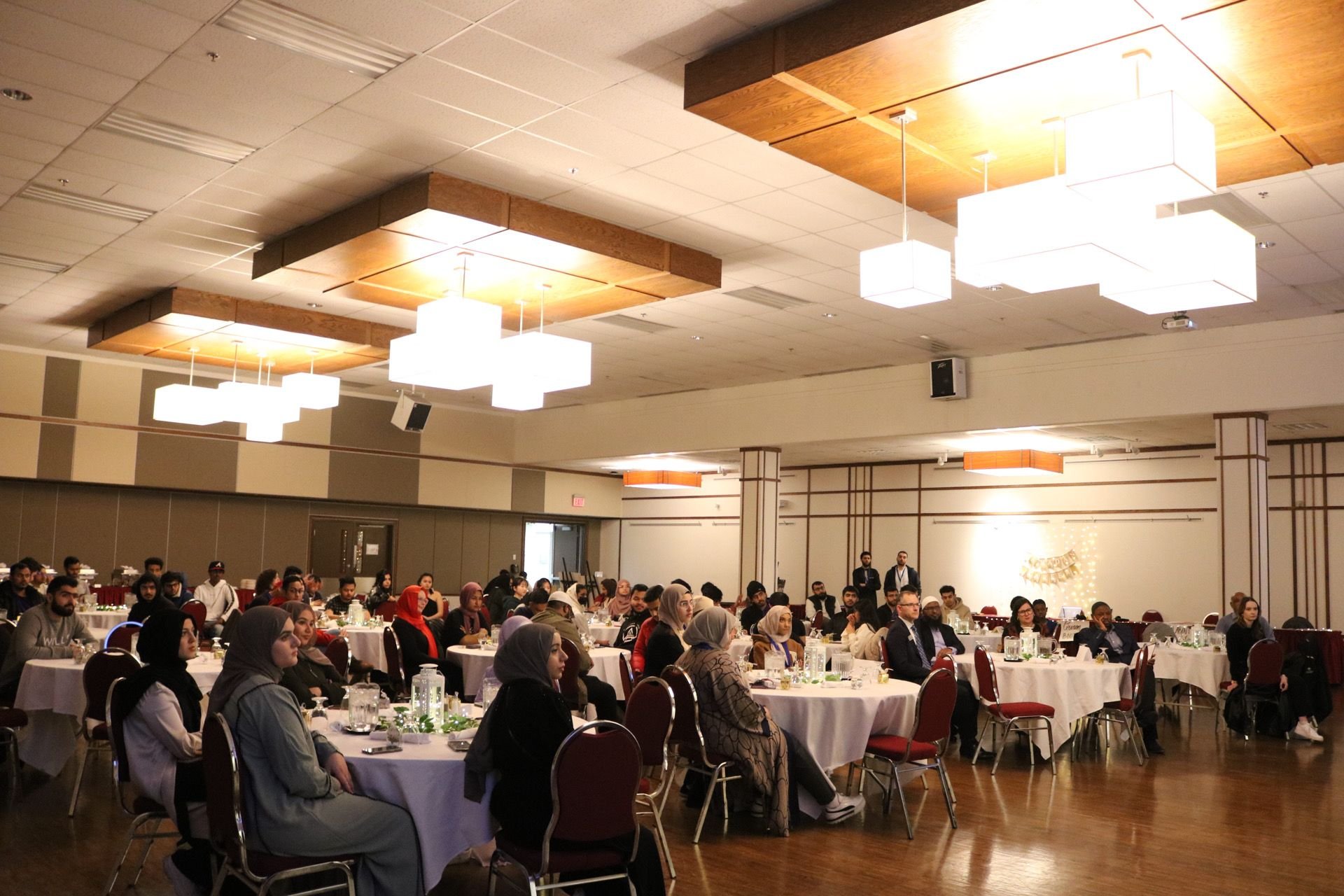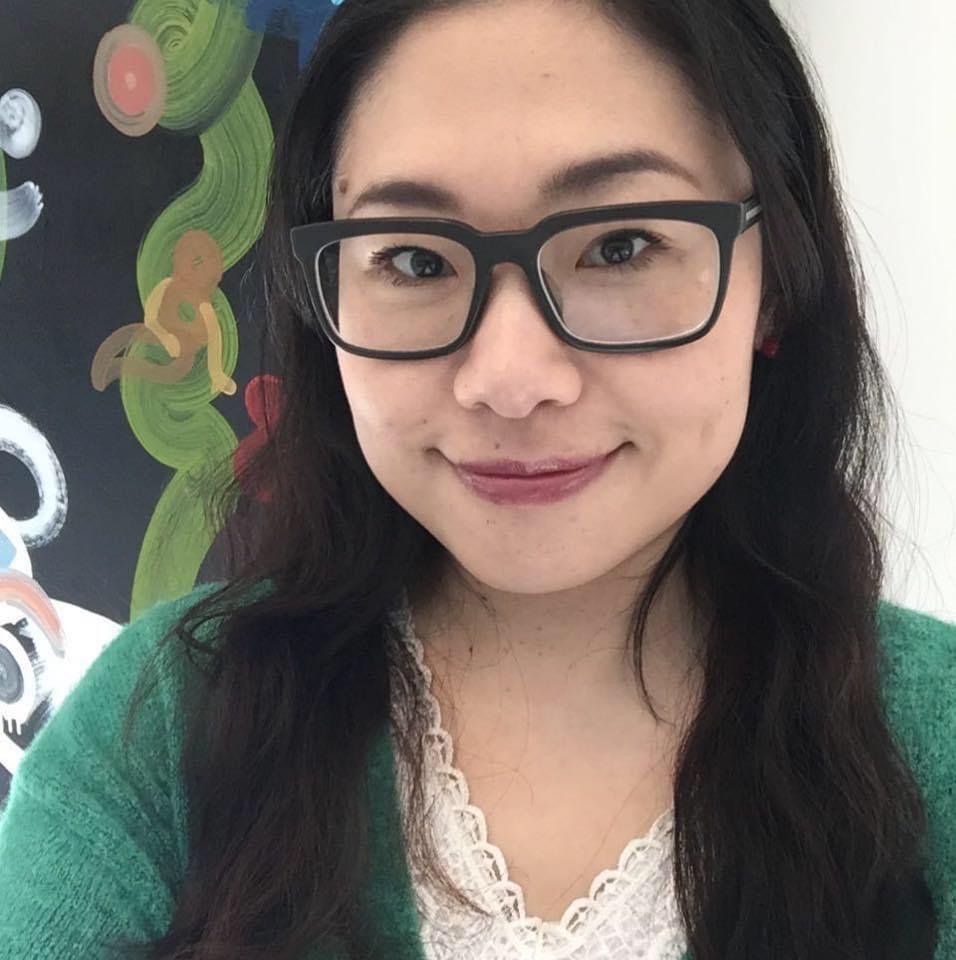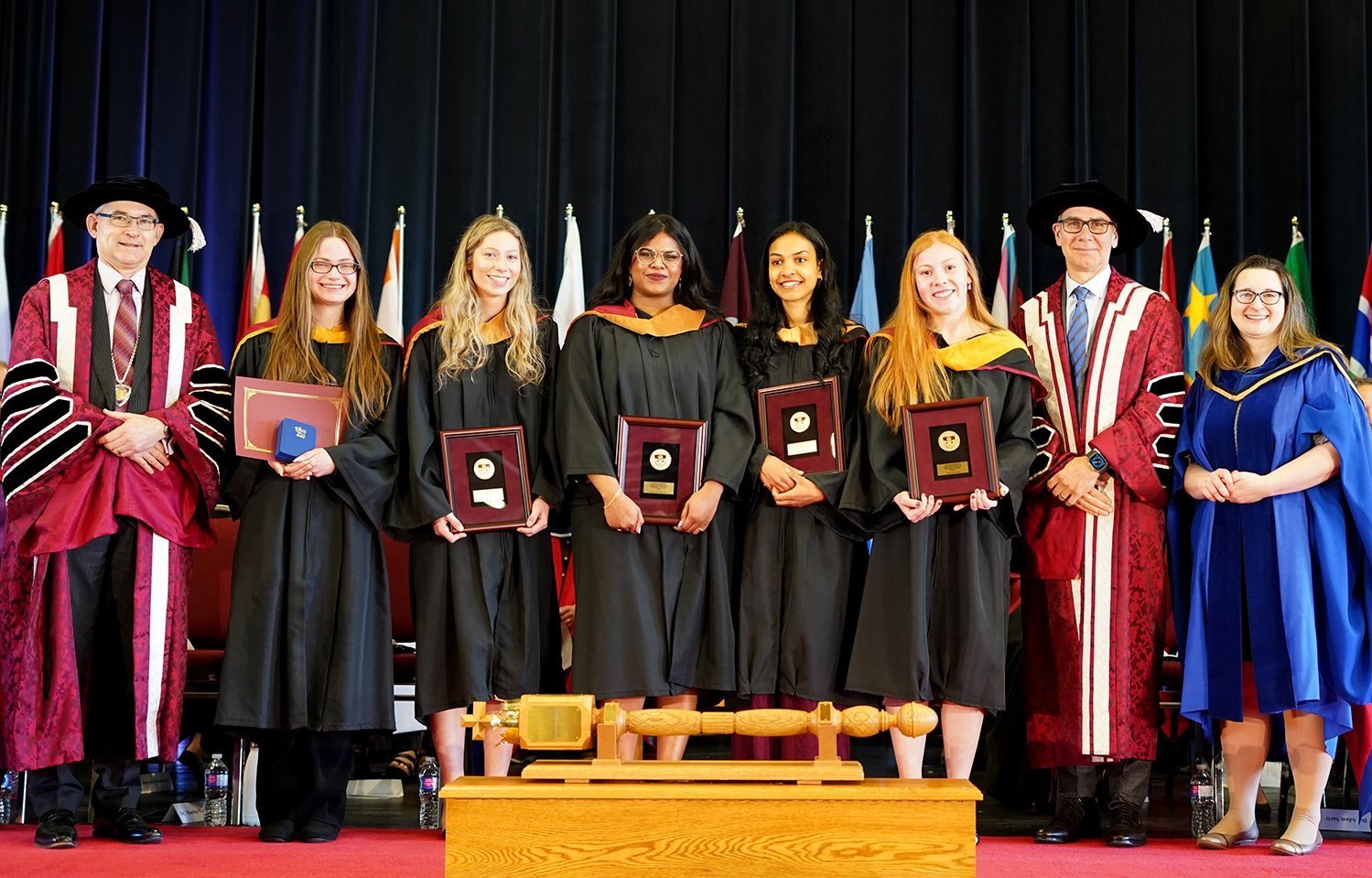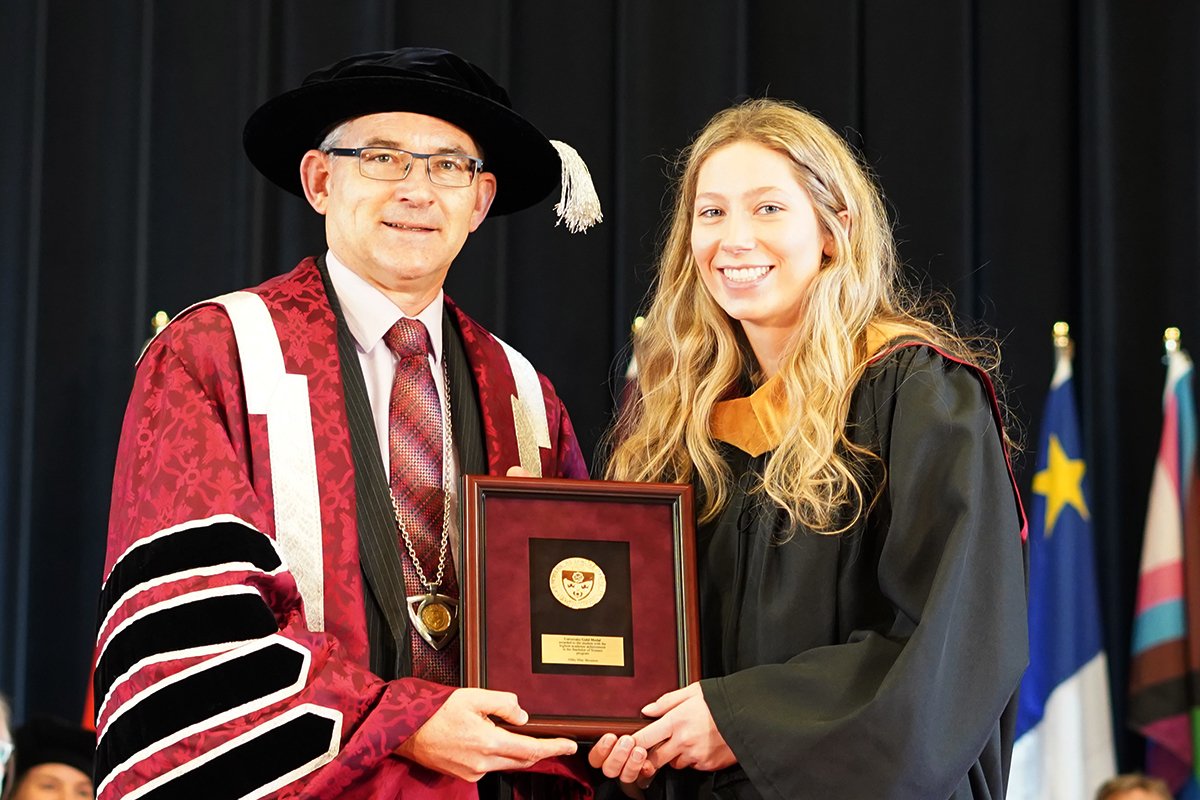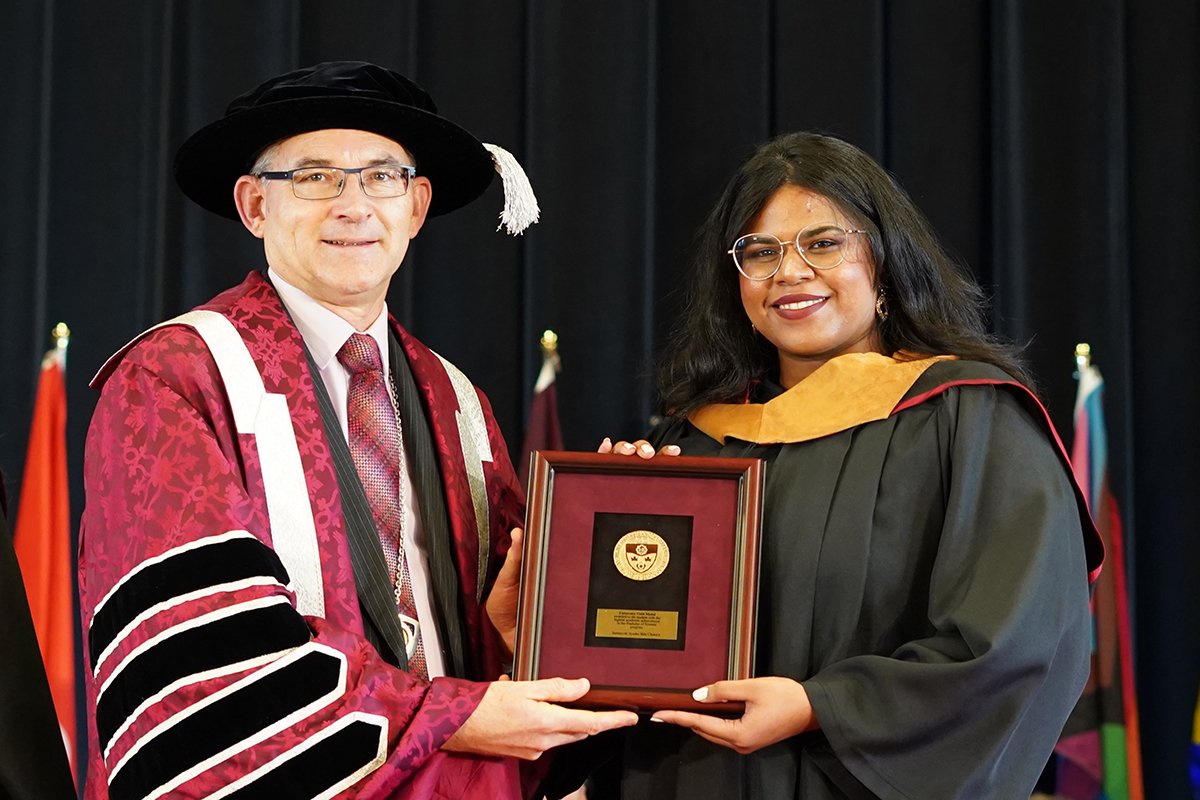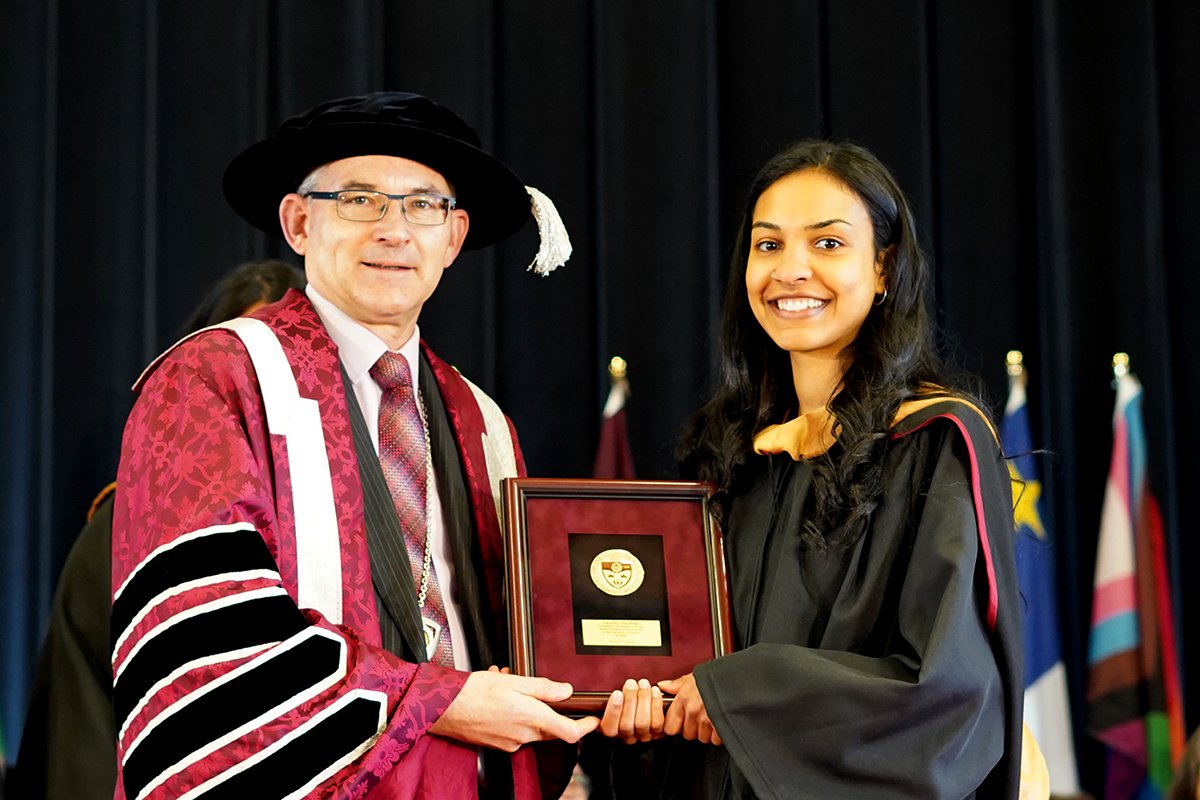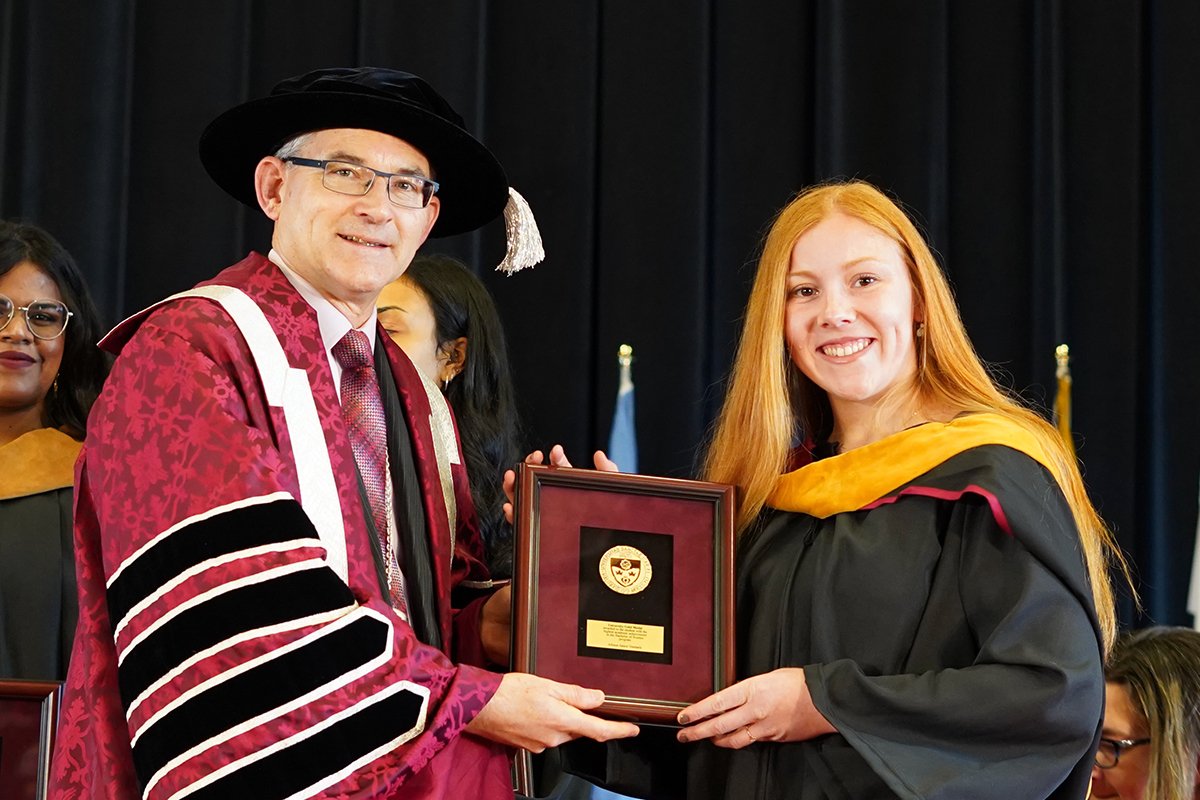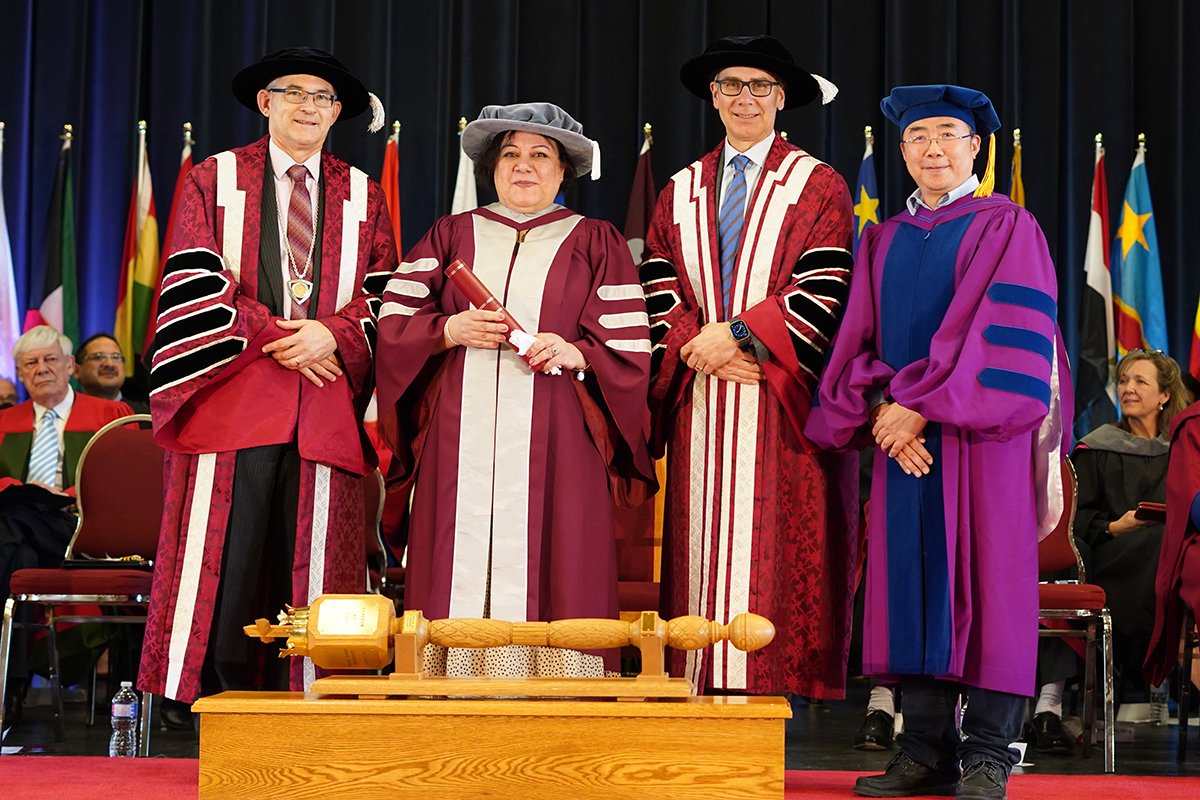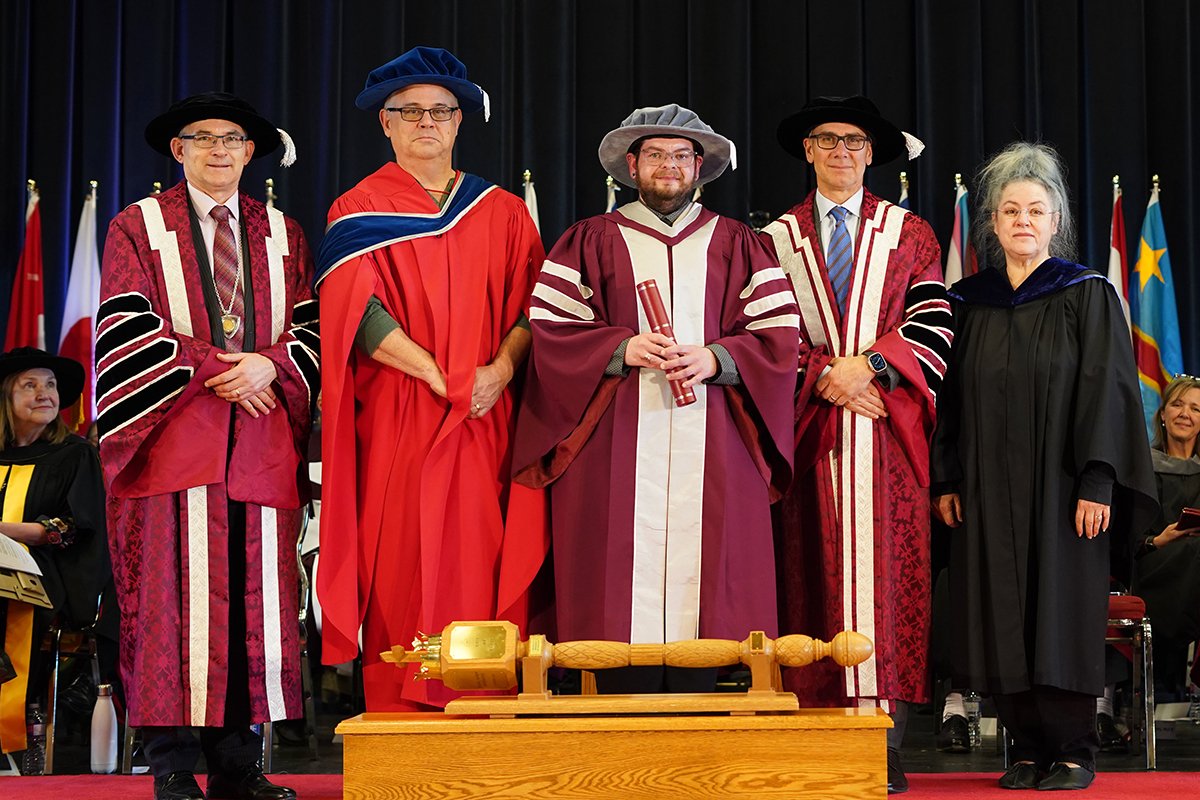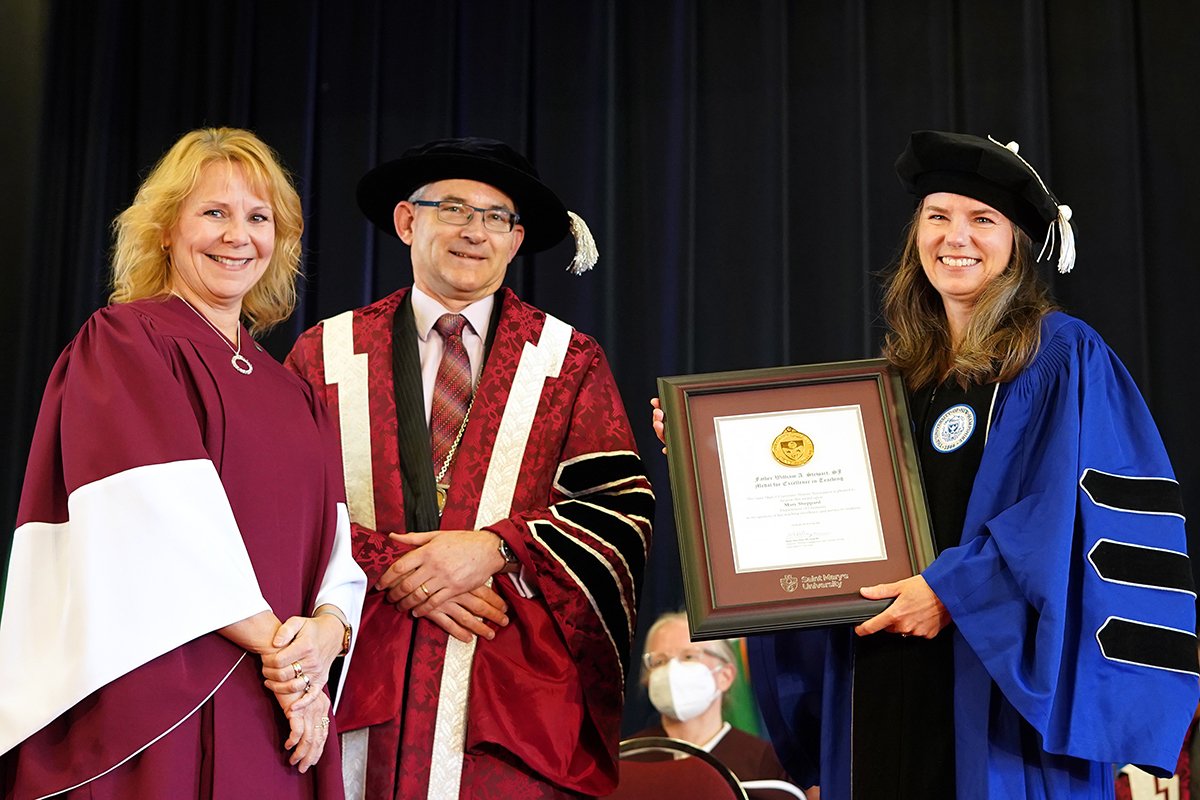Settling in a new country is full of unknowns. Immigrants navigate the uncharted waters of adjusting to a new culture, new surroundings, and a new life. During a time of great transition, understanding financial practices and rules in their new country can be daunting.
Fulbright Canada, in partnership with the United States Embassy in Ottawa and Sobey School of Business of Saint Mary’s University, recently hosted a Community Leadership program. This one-of-a-kind event connected 50 new immigrants from 23 different countries and five continents: Asia, Africa, Europe, North America and South America. The speakers, session chairs and facilitators included finance professors from Dalhousie, Saint Mary's and Mount Saint Vincent University as well as practitioners from Royal Bank of Canada, Bank of Montreal, Health Canada, Investment Group and McInnes Cooper. The two-day event also received support from the Immigrant Services Association of Nova Scotia to connect immigrants to the informative material.
Participants engaged in discussions, breakout sessions and had opportunities to network. Presentations covered personal financial management, consumer credit, real estate management, safeguarding from scammers, career choices and taxation.
The program was developed by Fulbright Canada Research Alumni Chair and former Dalhousie University professor and current professor of economics at the University of New Brunswick, Dr. Fazley Siddiq. The program’s creation also involved a Strategic Committee including two Sobey School of Business faculty members, Dr. Mohammad Rahaman and Dr. Ashraf Zaman.
“First and foremost, our goal is to help immigrants integrate within the greater Canadian society,” says Dr. Siddiq. “This program is focused on giving them more than basic financial skills. We’re giving them financial management skills which includes everything from making good investment decisions to informed choices with respect to mortgage loans, car loans, saving for retirement and more.”
Dr. Fazley Siddiq
Zahra Bazzi and Shiella Macion attended the Fulbright Community Leadership program. They both felt it was beneficial.
“This is the first time I’ve had the opportunity to learn about personal financial management in Canada,” says Bazzi. “The sessions were very informative.”
“I appreciate the networking opportunity and to get to know people who don’t necessarily have the same background as me but have immigrated to Canada,” says Macion. “I have a background in the finance industry, but there are things that I have learned that are enhancing my understanding.”
Zahra Bazzi and Shiella Macion
The event also included special guests: U.S. Consul General for Atlantic Canada Lyra Carr, Halifax Mayor Mike Savage, the Honourable Steve Craig, Nova Scotia’s Minister of Fisheries and Aquaculture, the Honourable Brian Wong, Minister of Advanced Education, Andy Fillmore, Member of Parliament for Halifax, and Jennifer Watts, CEO of ISANS.
The Honourable Steve Craig, Saint Mary’s University President and Vice-Chancellor Dr. Rob Summerby-Murray, U.S. Consul General for Atlantic Canada Lyra Carr, Sobey School of Business Dean Dr. Harjeet Bhabra, Fulbright Canada Research Alumni Chair Dr. Fazley Siddiq and Halifax Mayor Mike Savage.
Saint Mary’s University’s Sobey School of Business hosted the program. The school is the oldest and largest business school in the Atlantic region, and it was more than happy to welcome the participants, subject matter experts and special guests.
“Partnering with Saint Mary’s helped us reach a lot of people. There are many immigrants living in Halifax, and the city has numerous experts from academia and the banking sector who volunteered their time to be here,” says Dr. Siddiq. “When I spoke to the Sobey School of Business’ Associate Dean, Dr. Mohammad Rahaman, he was quick to suggest that the university host the event.”
Dr. Siddiq hopes participants walked away from the session with a good knowledge of financial management and that they feel inspired to continue to learn and ask questions.
